Alfabeto segnico. Sergi Barnils, Giuseppe Capogrossi, Achille Perilli e Joan Hernández Pijuan

Alfabeto segnico. Sergi Barnils, Giuseppe Capogrossi, Achille Perilli e Joan Hernández Pijuan
Dal 15 September 2017 al 29 October 2017
Milano
Luogo: Fondazione Stelline
Indirizzo: corso Magenta 61
Orari: Martedì – Domenica, 10 - 20 (chiuso il lunedì)
Curatori: Alberto Fiz
Enti promotori:
- Regione Lombardia
- Comune di Milano
Costo del biglietto: ingresso gratuito
Telefono per informazioni: +39.02.45462.411
E-Mail info: fondazione@stelline.it
Sito ufficiale: http://www.stelline.it/
Fino al 29 ottobre 2017, alla Fondazione Stelline, un progetto espositivo che coinvolge Italia e Spagna con quattro artisti di generazioni differenti impegnati nella ricerca di un segno primario.
Sergi Barnils, Giuseppe Capogrossi, Achille Perilli e Joan Hernández Pijuan sono i protagonisti di Alfabeto segnico, mostra a cura di Alberto Fiz, che ha lo scopo di rintracciare le strutture testuali che si celano all’interno dell’immagine in base a un percorso che parte dal 1950 per arrivare sino a oggi.
Non scrittura, ma una forma-segno che si pone come atto creativo superando il dato appartenente alla realtà sensibile. Gli artisti in mostra, pur nelle differenze dei loro percorsi stilistici, sono legati da un sottile filo rosso evidenziato dall’aggregazione costante degli elementi in una continua rivitalizzazione del segno archetipale che determina un progressivo allargamento dello spazio dipinto.
Sono circa 40 le opere esposte, provenienti da importanti collezioni pubbliche e private, attraverso cui indagare un processo linguistico in continua evoluzione che sviluppa, nel tempo, una serie di varianti e combinazioni riscontrabili nelle opere di Sergi Barnils e Joan Hernández Pijuan, due artisti che hanno saputo reinterpretare la lezione dell’immediato dopoguerra rinnovando la dimensione germinale e primaria di un immaginario libero da condizionamenti ideologici. Le trame irregolari di Pijuan, che evocano i percorsi di un paesaggio scavato nella materia pittorica, sono accostabili ai graffiti di Perilli, intesi come mappe segrete. Barnils, invece, affolla la superficie di un segno miniaturizzato che si ripete in un mantra liberatorio in cui la pittura contiene emozioni, ironia e un’infinità di combinazioni imprevedibili. Pur partendo da presupposti differenti rispetto a Capogrossi, non c’è dubbio che si ritrovi in entrambi la tensione verso un’ars combinatoria che conduce verso “la proliferante molteplicità di ciò che ci circonda, imponendo la riorganizzazione spaziale con l’uso sapiente di un segno che assume significato e valore universale”.
Dopo Milano, la mostra si sposterà al CaMeC di La Spezia.
SCARICA IL COMUNICATO IN PDF
COMMENTI

-
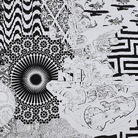 Dal 19 January 2026 al 1 March 2026
Roma | GNAMC | Galleria Nazionale d’Arte Moderna e Contemporanea
Dal 19 January 2026 al 1 March 2026
Roma | GNAMC | Galleria Nazionale d’Arte Moderna e Contemporanea
Maurizio Cannavacciuolo. Promenade
-
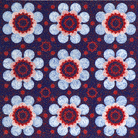 Dal 17 January 2026 al 22 March 2026
Bologna | Museo Civico Medievale
Dal 17 January 2026 al 22 March 2026
Bologna | Museo Civico Medievale
Alessandro Moreschini. L’ornamento non è più un delitto
-
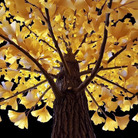 Dal 15 January 2026 al 15 April 2026
Milano | Palazzo Citterio | Ledwall
Dal 15 January 2026 al 15 April 2026
Milano | Palazzo Citterio | Ledwall
Debora Hirsch. Vanishing Trees
-
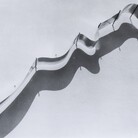 Dal 15 January 2026 al 28 February 2026
Milano | The Pool NYC | Palazzo Fagnani Ronzoni
Dal 15 January 2026 al 28 February 2026
Milano | The Pool NYC | Palazzo Fagnani Ronzoni
I tempi dello sguardo. 90 anni di fotografia italiana in due atti - Il Bianco e il Nero
-
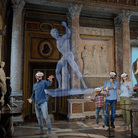 Dal 9 January 2026 al 27 February 2026
Roma | Galleria Borghese
Dal 9 January 2026 al 27 February 2026
Roma | Galleria Borghese
Sguardi oltre il tempo
-
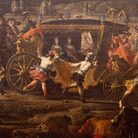 Dal 20 December 2025 al 20 April 2026
Caserta | Reggia di Caserta
Dal 20 December 2025 al 20 April 2026
Caserta | Reggia di Caserta
Regine: trame di cultura e diplomazia tra Napoli e l’Europa


